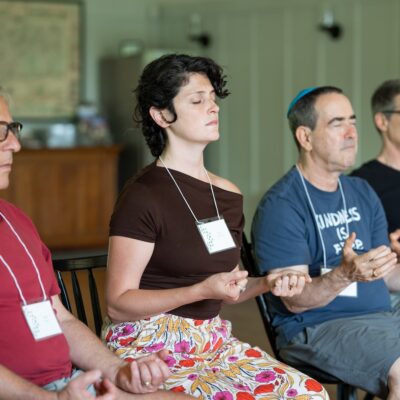Opinion
Creating a new, digital marketplace for the Jewish gig economy
I was introduced to Matt Grossman, CEO of BBYO, about a year ago by a former colleague of mine at Moishe House. Matt described to me BBYO’s need for a technological solution that could pair educators, song leaders, program facilitators and others who have contract relationships with BBYO, to their chapter and regional staff members. The process of pairing these folks up manually via preexisting relationships with BBYO’s team was time consuming, and he wanted an automated solution to what has been a more analog process.
We began to discover that what grew first as a solution to an internal organizational process issue could also have merit and use cases throughout the Jewish professional world. Through my conversations with freelancers and organizations, we saw a need for a digital tool that organizes service providers and temporary job opportunities in service of enhancing the work of Jewish nonprofit organizations.
I helped Matt and his team build out a new website, jewishgigs.com. There are other Jewish job aggregators that we all know and love, like jewishjobs.com, jewishstaffing.com and CareerHub by JPRO, to name a few, that we are not seeking to replicate.
Jewishgigs.com fills two unique gaps in the existing marketplace:
- It is a two-way marketplace. There are listing formats for both organizations (or individuals hiring privately) as well as for freelancers — folks who work primarily on contracts. We call freelancers “Talent” on jewishgigs.com, reflective of the unique talents that they bring to the marketplace of Jewish employment.
- jewishgigs.com seeks to provide a space for freelancers to advertise their services within the broader context of Jewish organizations in North America. Many people who have a side hustle in the Jewish world are either also working a full-time job for a Jewish organization and aren’t planning to take the (very scary) leap of spending 100% of their time working as a contractor. This site provides part-time contractors a space to advertise their services without needing to purchase a domain and build out a website for themselves.
One of the bigger challenges of this project was finding the right online platform. Many marketplace site builders require payment processing or fee collection. We felt that it was critically important to keep this site free to use for our audiences. We found the right platform in Sharetribe, an online marketplace builder based in Finland.
The free-to-use nature of jewishgigs.com reflects the significant inherent value that freelancers bring to the economic landscape of Jewish organizations. All types of Jewish organizations rely in some way on workers whose portfolios are temporary, hourly, contract-based or very part-time (only a few hours per week, like a religious schoolteacher). We want these workers to be able to use this site without a cost barrier-to-entry.
We launched the site officially in mid-February and we are receiving an overwhelmingly positive response from both freelancers and organizations. We hope that the site will be helpful for our three primary audiences:
- Freelancers a.k.a. Talent, who can list their contract services on the site.
- Jewish nonprofit organizations, who can hire freelancers to meet their needs for a project.
- Individuals who need to hire someone who performs a Jewish service, like officiating a Jewish wedding, or someone who performs a secular service in Jewish settings (i.e. catering, photography, graphic design).
While jewishgigs.com was built with the context of North American contractor-organization relationships in mind, there’s no proscription on where someone has to be located to list their services, or where gig work might be located in the broader context of global Jewry. We hope that members of Jewish communities across the world find this a useful tool in navigating their work and their projects.
My dad taught me that “there’s no such thing as a free lunch.” I suppose that he wanted me to understand that everything has value, even if I’m not the one paying for it. I’ve kept this lesson in mind as we have built out a platform with real and significant costs without asking for money in return. The return on investment in the form of time saved, new freelancer-organization relationships, and knowledge and skills being disseminated to new, wider audiences will speak for itself.
Jewishgigs.com is powered by BBYO and Moishe House but open to nearly everyone in the community.
Jonah Rothstein (he/him/his) is the project manager, designer and site administrator for jewishgigs.com. Jonah spent 3 years working at Moishe House, ending his time there as the associate director of Jewish education retreats, where he worked frequently with contract Jewish educators. Jonah has since leaned into his own contract business, working on jewishgigs.com and a municipal political campaign in Minneapolis, MN. Jonah can be reached at jmdrothstein@gmail.com.

 Add EJP on Google
Add EJP on Google









